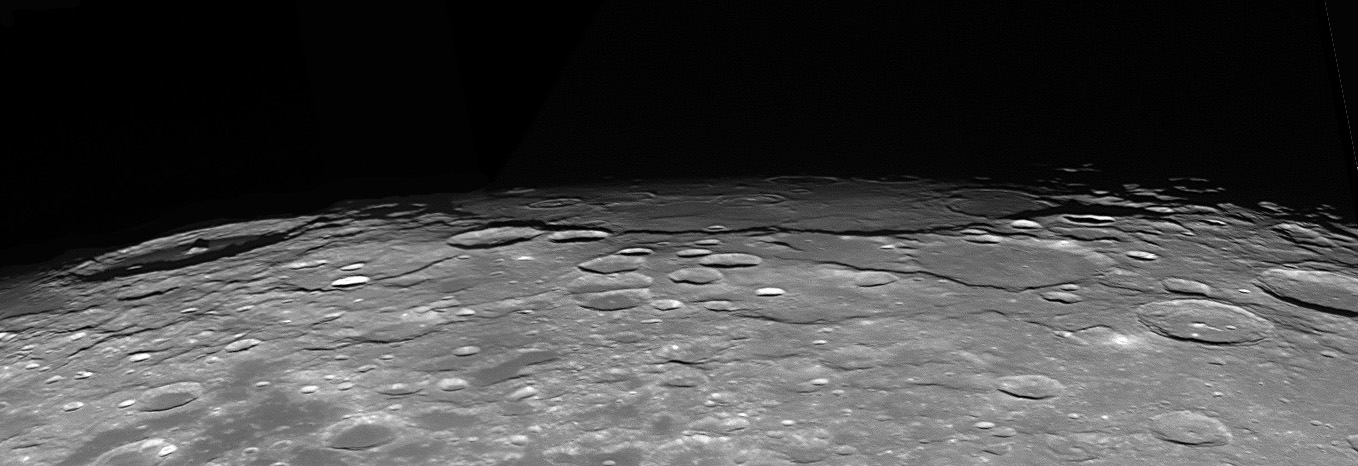image by Damian Peach
Smyhii, one of two near-equatorial maria on the Moon’s eastern limb, almost always is imaged under higher lighting. Damian’s new mosaic catches the mare just as sunset cuts it in half. The illumination is still low enough for the shadow of a basin rim to be visible on the western edge of the mare floor, proving that Mare Smythii is a depression contained within an impact basin. Both Apollo 16 and 17 imaged this area, yielding high precision topographic maps. From these, the 370 km rim that’s casting the shadow rises up to 3.4 km above the basin floor. The floor includes basalts that may be as young a 1 billion years old, perhaps the youngest on the Moon. Using Clementine data to identify craters that excavated below the basalt suggests that the maria lavas are thin, only about 325 m thick. Damian’s image also shows floor-fractured craters just on the terminator - Runge and Warner - and Kiess and Haldane a little nearer. All of these have erupted pyroclastic materials which show on high Sun views. Basalt on the northern portion of the basin floor is bright and has been dusted with anorthosite. This crustal rock was probably spread onto the mare as ejecta from Neper (left on image), Hubble and Joliot, all of which have anorthosite in their central peaks. What a region!
Technical Details:
5 November, 2006. C14 @ prime focus. Lumenera Skynyx 2.0M.
I thank my son for playing Metallica music while I tried to write this LPOD!
Related Links:
Rükl charts 38 & 49
Damian’s website
Clementine Study of Smythii
Apollo Topography of Smythii
Yesterday's LPOD: Danny's Globe
Tomorrow's LPOD: A Missed Centenary
COMMENTS?
Register, Log in, and join in the comments.




